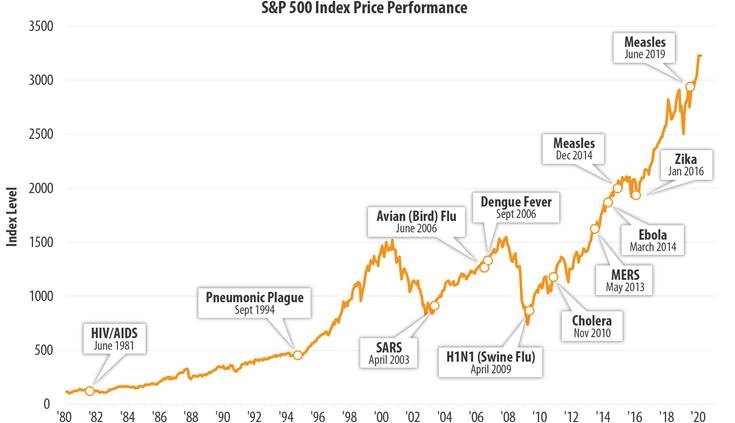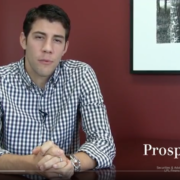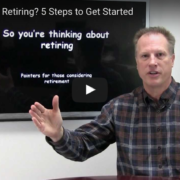A Note to Clients on Virus Volatility
As I’m sure many of you are aware, this past week has been a difficult one for investors. The broad market indices have seen swift and dramatic drops, leaving many scared, confused, and upset.
Make no mistake; it is moments like these that define all of us as investors. Fear is an emotion, and one that can quickly snowball into an all-out panic. We’ve often said your behavior as an investor will ultimately have a far greater effect on your outcome than when or how you are invested. This is one such moment.
But emotion is hard to control. So in times like these I find a little perspective goes a long way. As of this writing (Thursday evening), the Dow Jones is down 13 percent from it’s all-time high. No doubt that’s a significant amount, but perspective tells us that the last time we saw these numbers was only six months ago.
That’s right. In spite of all the drama and noise, the market has “plunged” to levels not seen in only six months.
This is normal. We’ve written time and again about how historically the S&P 500 has experienced an average peak-to-trough intra-year decline of about 11 percent. In other words, the S&P has dropped by 11 percent at some point during any given year, only to turn around and end up higher.
Even the apparent cause for the drop is in-and-of-itself not unusual. Have a look at the following chart, highlighting a number of epidemics over the past 40 years.

The 6-month change of the S&P following the start of each epidemic scare was positive in 11 of the 12 cases, with an average price return of 8.8 percent. Twelve months later it was still positive in nine of those cases with an average return of 13.6 percent.
These types of temporary pullbacks have happened, are currently happening, and will likely happen again at some point in the future. The world has not ended, the market has not gone to zero, and we are still here.
We also want to share a highlight from a recent letter penned by Brian Wesbury, Chief Economist at First Trust.
One death is too many, but to put that number into a little bit of perspective, according to the World Health Organization, in the United States alone for the 2019-2020 season, there have been at least 15 million flu illnesses, 140,000 hospitalizations and 8,200 deaths. Imagine if everyone with an internet connection followed the spread of this annual flu, case by case, hour by hour.
It’s true that the death rate from Coronavirus appears to be around 2% in China, which is much higher than the death rate from the normal flu, but like the flu increases with age. However, outside of China the death rate is far less than inside China, roughly 1%. And, there is already a drug that will combat COVID-19 moving toward first phase clinical trials. It took three months for this to happen in 2020, versus 20 months for SARS back in 2002/03 – a testament to advances in drug technology.
From a macro-economic point of view, the real question is how will this impact the US economy over the coming year. In short, our view has not changed. The US we believe is relatively insulated, with a fantastic health system. The US started the year with solid economic data and so far, nothing has changed.
It can be hard to remember your goals, your plan, your true north in moments like this. Moments when the TV is yelling, the internet is in an uproar, and everyone is seemingly running about in a panic. But moments like these are WHY we have a true north: to remind us that we are working toward and in pursuit of something greater. Of course there will be bumps along the way, but they are only detrimental when they succeed in knocking you off your path.
Sometimes our worst fears are the most unfounded. Fear is damaging, destructive, and powerful. Great investors will understand this and let logic drive their decision-making, not emotion. Price declines are always temporary and often spell opportunity.
We are in this together. We are here to help make you a better investor, to help keep you aligned with your goals, and to provide gentle guidance and reminders during times like these. As always, we are available to talk with you about whatever is on your mind. So if you’re nervous, afraid, upset, or any other emotion, please give us a call.
Thank you for being a client of Prosperion Financial Advisors.








